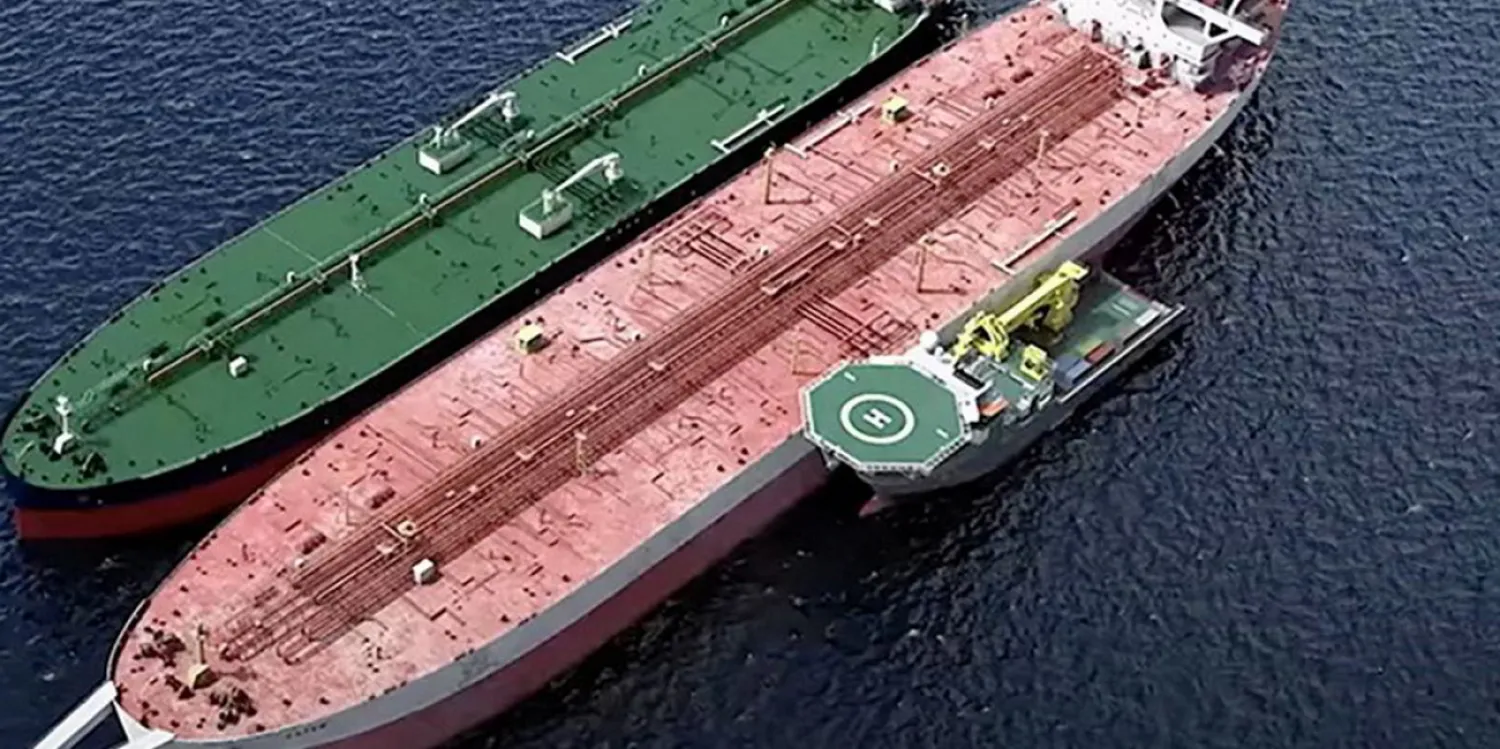As the UN-supervised salvage operation for Yemen’s derelict Safer oil tanker nears completion, a recent report cautioned against Houthi militias exploiting the rescue vessel, formerly known as Nautica, used to hold the rundown ship’s oil cargo.
On Wednesday, the Yemeni government reported that approximately 96% of the oil stored in Safer has been successfully transferred to the alternate vessel acquired by the UN.
The oil was handed over to Houthis, who control the port of Ras Issa where the deteriorating tanker is located.
This transfer is part of the UN-backed rescue plan aimed at preventing the leakage of 1.1 million barrels of crude oil into the Red Sea.
The new report titled “Replacing Safer with the Used Nautica Vessel: A Risky Step with Grave Consequences” has conveyed warnings about danger persisting even after the transfer operation is completed.
The report was prepared by two Yemeni researchers on behalf of the Khuraz Environmental Consulting Center and the Maat Foundation for Development and Human Rights.
The report cautioned against potential additional problems arising from the new vessel’s age and limited remaining operational capacity. It also highlighted the capture of two vessels by Houthi militias, emphasizing that the current solution does not resolve the environmental crisis and leads to economic complications.
The report has raised concerns about possible negative repercussions and catastrophic risks, given that the rescue vessel is 15 years old, casting doubts on its ability to withstand harsh weather conditions over an extended period.
The Yemeni researchers also pointed out that most countries around the world prohibit ships older than 20 years from entering their ports to protect the environment and port infrastructure.
They questioned the process by which a 15-year-old vessel was approved for purchase, alongside growing concerns about the financial constraints faced by the Yemeni government and other involved parties.
The researchers raised inquiries about the decision-making process for allocating resources and funds to resolve the crisis, the actions taken, and the statements issued by officials from UN agencies in Yemen, as well as statements from Houthi leaders.
The report outlined the financial limitations experienced by the Yemeni government and other stakeholders involved in the Safer vessel dilemma.
It highlighted concerns about the manner in which the decision to acquire the new ship was made, emphasizing the necessity of conducting a more thorough study of these constraints to understand the potential impacts and consequences of replacing Safer with Nautica.









